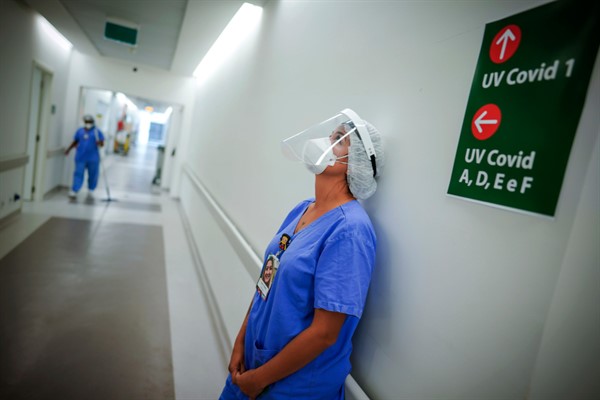As COVID-19 starts to loosen its grip on the world, it makes sense to ask what we’ve learned from this punishing experience, so that we can be better prepared when the next pandemic strikes—which it will. Although it will take years to absorb the plague’s many lessons, here are four insights from the past year that should inform multilateral pandemic preparedness in the months and years ahead.
The planet is out of balance, endangering human health. This pandemic has been severe, but it should not have come as a surprise. The past half-century has seen a surge in zoonoses, or viruses that can jump from animal to human hosts, including Ebola, SARS, H1N1, MERS and Zika, among others. Their emergence is a function of our assault on the natural world. As we encroach upon and degrade ecosystems, we and our domesticates come into contact with previously isolated wild species and their pathogens. According to the U.N.’s Intergovernmental Science-Policy Platform on Biodiversity and Ecosystem Services, humans may be susceptible to 850,000 of the 1.7 million undiscovered viruses thought to infect birds and mammals. In retrospect, it was only a matter of time before a novel, highly contagious virus emerged and exploited global transportation links to spread to every country on Earth.
It will not be the last such occurrence, and the world must respond accordingly. The age of zoonotic disease requires a coordinated approach that reflects the intimate connection among human, animals and environmental health—along the lines of what the World Health Organization has called a “One Health” strategy. To reduce human exposure to new pathogens, nations must cooperate to protect intact habitats and their species, curb the illicit wildlife trade, identify zoonoses with pandemic potential, and expand surveillance and forecasting capabilities to predict, immediately detect and quickly contain outbreaks.

